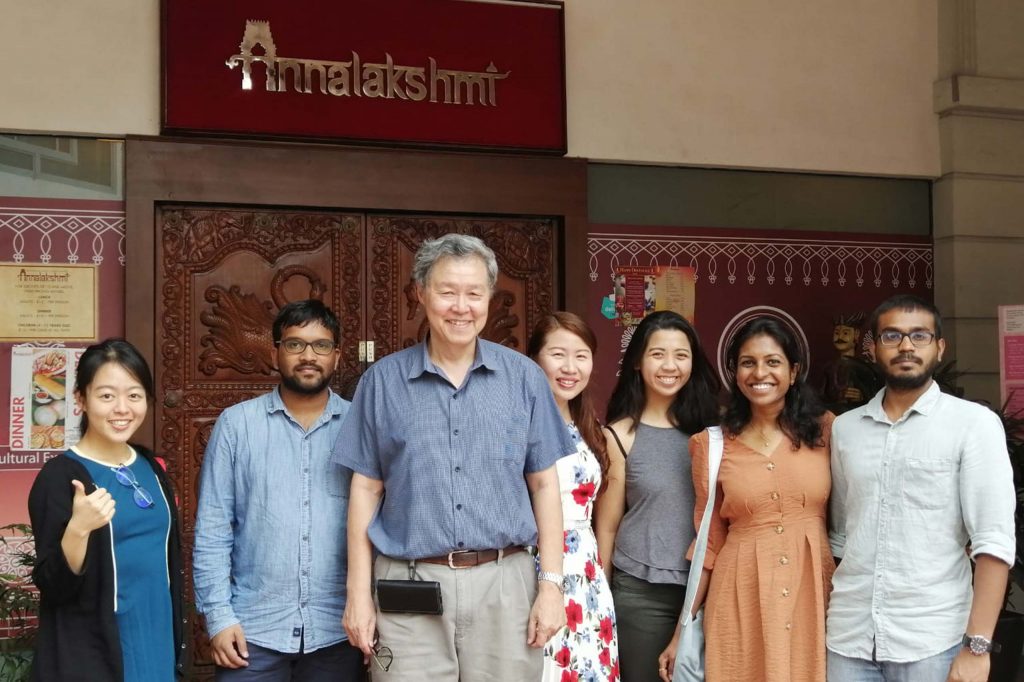Introducing The VIP: An AI Response To Clinical Teaching In The Time Of COVID-19

The picture above shows the interface of the VIP.
From left, first panel: Every patient in this database is unique and the VIP can randomly generate patients for the user (Random Patient Generator). The interface is designed like a chat room where doctor and patient can hold a realistic conversation about the symptoms felt and recommended course of treatment.
Second and third panels (bottom): This portal is multidimensional, where users can perform physical examinations and run realistic lab investigations for their virtual patients, to gather more evidence, should the history-taking component be insufficient. Case information provided is realistic and based on results that occur in real life.
by Juanita Kong
Research Assistant, Department of Pharmacology
Dr Judy Sng
Senior Lecturer, Department of Pharmacology
Like how pilots train flying aircrafts on flight simulators before taking to the skies, the Virtual Integrated Patient (VIP) seeks to complement medical education by providing medical students with a safe space to practise their clinical skills anywhere and anytime. This allows them to gain confidence before stepping into an actual clinical environment.
Equipped with a random patient generator, students are exposed to different clinical cases. They are tasked to identify symptoms based on asking the virtual patient questions that would lead them to make an appropriate diagnosis. One remarkable feature of the VIP programme is its conversational technology. A chatroom with a virtual patient is set up, where learners can converse with him or her like how a consultation session with a doctor would be like on a messaging app. This includes patients detailing how they are feeling and why they have come for a consult. Information collected from the conversations between the patient and the doctor are compiled into datasets subsequently to enable a smoother AI-learning experience.
The VIP was recently piloted with Phase II (Year 2) medical students as part of the “Communication with Patients” module facilitated by Dr Teo Boon See. A survey was conducted among these students after using the learning portal, to further understand what they liked about it and how it can be improved to better serve their learning needs. The first batch of students who trialed this website welcomed it as this allowed them to accumulate additional practice in patient diagnosis, in addition to the Standardised Patients (SPs) that they were clerking weekly. Our students find this helpful as an additional learning resource that they can leverage on the go and at any time when they are busy. The launch of this VIP programme also coincided with the transition to online classes due to the COVID-19 pandemic, so that learning was not disrupted and students could still continue to hone their clinical skills despite moving to home-based learning.
Besides bettering their clinical acumen and jogging their memory on what they have learnt during their curriculum time, students also gave feedback that these simulations help them improve their ability to assess a patient from symptom to diagnosis, which is the reality of what students encounter when they go to clinics to meet their real patients. A key objective of VIP is its focus on the process taken to get to the end point, rather than the diagnosis itself.
With the COVID-19 circuit breaker in place, we have also provided Phase IV (Year 4) students with hands-on experience to develop the VIP platform with us under their elective module “Inspiring Health for All” under the topic of Education Innovation. Over 12 weeks, the students developed their symptom of choice and took it through the development of history-taking conversations with their virtual patient, the physical exam and investigations to perform on their virtual patient and the appropriate provisional and differential diagnoses at the end of the process. The platform was shortlisted as one of the two top Education Innovation projects and selected for a webinar presentation in the Pathway-Based Elective Programme Grand Finale to faculty members and their fellow students.
One remarkable feature of the VIP programme is its conversational technology. A chatroom with a virtual patient is set up, where learners can converse with her or him like how a consultation session with a doctor would be like on a messaging app.
The Phase IV students felt positively about the experience, such as their work in the development of a couple of diagnoses. Overall, they believe in the value of the VIP as a learning platform for themselves and
students in the medical school.

The uptake for the VIP platform has been largely enthusiastic. This diversity of different clinical cases gives rise to more active discussions among the tutorial or student groups, allowing the students to share their experiences of different patient types with their peers, discuss the process of arriving at a diagnosis and learn new or different ways of approaching a case. Indeed, this VIP portal has been flexible and beneficial for the education of students from different years, which will be impactful when introduced into the medical community.
The VIP was initially funded by the MOE Tertiary Research Funding 2018-2020 and is currently supported by the Yong Loo Lin School of Medicine under the Innovation Project. It was shortlisted under the Graduate Research Innovation Project (GRIP) and hot- housed for venture creation, but the team decided to further develop the platform for our students before moving it out to be used commercially.
If you are interested in using the VIP, please visit www.virtualintegratedpatient.com to request a free trial. If you are interested in developing cases for the VIP to integrate into your teaching, email us at phcsngj@nus.edu.sg and phcelee@nus.edu.sg for further discussion.
